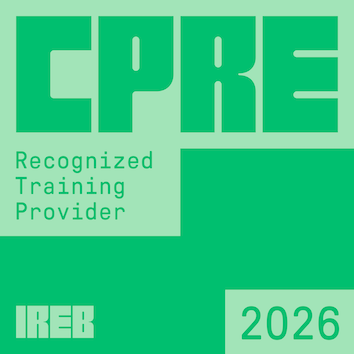content & syllabus
SeU - Certified Selenium Engineer (CSE) offers its participants the un-diluted Selenium experience. Other similar courses tend to cover non-Selenium topics such as TestNG, Reporting, CI, Cucumber etc, which tends to bulk up the course, but alter the focus on key features of Selenium that are crucial in practice. This is why SeU - Certified Selenium Engineer (CSE) allows the participants to focus more on the critical Selenium concepts, so they better understand how to implement Selenium into their daily work.
Another important differentiator is that Selenium United believes in the importance of practical training, which is why over 70% of the course consists of hands-on exercises, which allows participants to also gain experience and implement as they learn.
SeU - Certified Selenium Engineer (CSE) is a hands-on course that deals with the Selenium concepts in a very practical way (30% theory, 70% practical)
- This course is a comprehensive certification aimed at anyone involved in developing and implementing automated web app automation using Selenium
- This course also provides full coverage of web test automation using Selenium, including all relevant techniques and terminology from the most basic to the most advanced concepts
- SeU - Certified Selenium Engineer (CSE) is a 3-day course, followed by a 60-minute certification exam at the end of the last day.
Course outline
Chapter 0 - Course Introduction
- Rules of the Selenium United training and certification program
- Exam related information
Chapter 1 - Web UI Automation
- Introduction
- UI Automation with Actual Browsers
- UI Automation with Actual Browsers with Screen Size Simulation
- Using Headless Browsers
- Web UI User’s Point of View
Chapter 2 - Selenium
- Introduction
- History
- Supporting Environments
- Suite
- Advantages/Disadvantages
- Selenium Architecture
Chapter 3 - Automating the Web Interface
- Introduction
- Agent/Driver Level Automation
- Launching/closing different browsers
- Navigation
- Inquire window and URL information
- Page Level Automation
- Inquire page level information
- Element Identification in depth
- ID
- Name
- Class Name
- Link Text
- Partial Link Text
- CSS Selectors – coverage of different variants
- Xpath – coverage of different variants
- Element Level Automation
- State inquiry
- Basic Actions
Chapter 4 - Advanced Automation Constructs using Selenium
- Better Waiting
- Dropdown Handling using Select object
- Element Multi-Match Handling
- Nested Element Handling
- Upload File
- Handling Alert
- Handling Windows/Tabs
- Handling Frames
- Taking Screenshots
- JavaScript execution
- Action Chains
- Keyboard interaction
- Handling Cookies
- Headless Browser Automation with HtmlUnitDriver
- Fluent Waits
Chapter 5 - Putting Together a Basic Framework
- Long Exercise: Automating End To End Scenarios
- Creating WebAutomator class – Basic Refactoring
- EventFiringWebDriver and EventListener – Implementing centralized printing for various Selenium events and exceptions
- Page Object Design Pattern
- A simple customized structure
- Using Page Factories
- Pages as Loadable Components
target group
If you are a tester mainly focused on manual testing and want to step into the world of test automation, this course is for you.
If you are a test automation engineer who has just started with Selenium or you have done test automation with other tools, and now want to explore Selenium, this course is for you.
If you are an engineer with an intermediate level of Selenium knowledge, and require some support on how the Selenium components best fit together for professional Selenium-based automation, this course is also for you.
Prerequisites
- Basic knowledge of Eclipse is recommended
- Basic knowledge of core Java is mandatory
Java Knowledge Prerequisites
The facilitator of the workshop will briefly cover relevant Java concepts as they are used in the course. Please note that Java concepts cannot be fully explained within this 3-day course. An extra day may be required if these prerequisites aren’t met by the candidates.
Participants who are well versed with the following concepts would be able to focus on the Selenium concepts in a much better manner, without diluting their attention to understand Java constructs.
No direct core Java questions would be included in the exam.
- Concept of main() method
- Compiling and running Java code
- Primitive data types
- Classes counterparts of primitive data types (e.g. Integer for int)
- Arrays
- Basic collections: List, Map
- String formatting and manipulation
- System.out and System.err
- Conditional control structures: if/else/else if, switch
- Looping Control structures: for (the 2 styles), while
- Exception Handling – throw, throws, try-catch-finally, Exception hierarchy
- Writing a Class with getter, setter and other methods
- Constructors and Class instantiation
- Class variables vs object variables
- Access modifiers – public, private, protected
- Class methods vs object methods
- Enum’s
- Packages
- Overloading of methods
- Inheritance
- Abstract classes and abstract methods
- Overriding of methods
- Object Composition
exam & certification
- 40 multiple-choice questions
- 60 minutes
- No negative marking
- Online or paper-based
- 65% required to pass (26/40)
Certificate issued by the internationally renowned certification body Brightest.
benefits and discounts
We know that you can learn best when you feel comfortable and when we meet as many of your expectations as possible. That's why you not only get a first-class training, but also a wide range of training and certification services. Read more about the benefits of training with trendig and what is included in our courses here:






